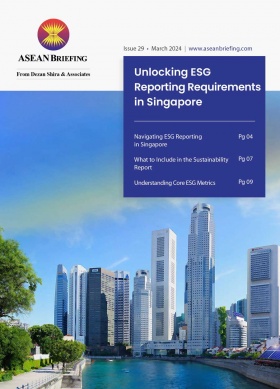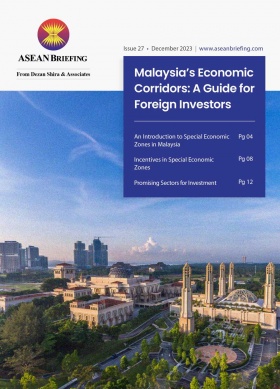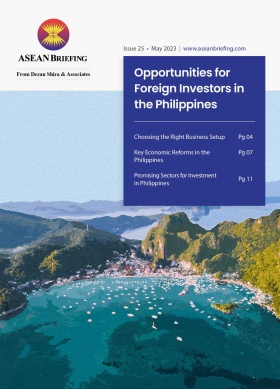Philippines Signs Second Protocol of ASEAN-Australia-NZ FTA
The Philippines ratified the Second Protocol of the ASEAN-Australia-New Zealand Free Trade Agreement (AANZFTA) to boost trade and investment opportunities and modernize the agreement to enhance market access and promote sustainable development, aligning with the country’s vision for economic collaboration within ASEAN.
On March 6, 2024, the Philippines officially ratified the Second Protocol of the ASEAN-Australia-New Zealand Free Trade Agreement, or AANZFTA (hereinafter, the “Second Protocol”), aiming to enhance opportunities for its micro, small, and medium enterprises (MSMEs). This protocol is anticipated to bolster market access, integrate MSMEs into global value chains, and stimulate e-commerce adoption.
The amendment seeks to modernize and adapt the original AANZFTA, which took effect in January 2010, ensuring its relevance amidst evolving global dynamics. Notably, enhancements encompass thirteen chapters, encompassing rules of origin, customs procedures, investment, competition, consumer protection, and electronic commerce.
Additionally, three new chapters on government procurement, MSMEs, and trade and sustainable development are introduced. The revised agreement also emphasizes bolstering supply chain resilience, fostering digital technology, enhancing collaboration on trade and sustainable development, and facilitating the flow of essential goods, especially during crises.With this ratification, the Philippines joins Australia, Brunei Darussalam, Indonesia, Malaysia, New Zealand, and Singapore in endorsing the Second Protocol.
Background to the AANZFTA
AANZFTA came into effect in 2010 and has remained one of the premier free trade agreements within ASEAN. In 2014, the First Protocol of AANZFTA (hereinafter, First Protocol) introduced several amendments regarding goods. Following the completion of the First Protocol’s General Review in 2017, various recommendations were made in 2018, prompting discussions regarding an upgrade.
Negotiations for the upgrade commenced in 2020 and reached completion by November 2022. The Second Protocol is slated to take effect 60 days after the deposition of ratifications by Australia, New Zealand, and at least four ASEAN Member States with the ASEAN Secretariat. However, this process is not expected to conclude until late 2024 at the earliest.
What is new in the Second Protocol?
The Second Protocol of AANZFTA encompasses revisions across thirteen out of its eighteen chapters, drawing substantial inspiration from the Regional Comprehensive Economic Partnership Agreement (RCEP). Aside from amendments related to investment, notable changes within the Second Protocol include:
- Implementation of new regulations aimed at restricting the utilization of non-tariff barriers to trade while enhancing transparency concerning their application.
- Inclusion of provisions facilitating the flow of essential goods during periods of crises.
- Enhancement of rules of origin provisions to simplify the process for more goods to qualify for preferential tariff treatment.
- Improvement of regulations governing services trades to enhance transparency and certainty for cross-border service providers.
- Alignment of the Electronic Commerce Chapter with RCEP’s data regulations, with the added provision of dispute settlement for these regulations following a transitional period.
- Introduction of a new Trade and Sustainable Development Chapter to promote collaboration among the Parties on sustainability matters.
- Revision of the security exception clause to mirror those found in agreements such as the Comprehensive and Progressive Agreement for Trans-Pacific Partnership, granting clearer deference to governments seeking to implement measures for essential security reasons compared to the previous WTO-style exception in AANZFTA.
Investment-related changes
The Investment Chapter within the Second Protocol underwent substantial revisions as part of the upgrade process, introducing several key changes pertinent to investors. These include:
- Introduction of a Most-Favoured-Nation (MFN) treatment obligation, mandating Parties to afford AANZFTA investors treatment no less favorable than that granted to investors from other nations.
- Implementation of new obligations prohibiting the imposition of nationality or residency requirements for senior managers or boards of directors (SMBD).
- Enhancement of the prohibition of performance requirements (PPRs) obligation, restricting the utilization of investment conditions such as domestic content or minimum export requirements.
- Inclusion of Schedules of Non-Conforming Measures outlining areas in which Parties are exempt from specific Investor Chapter regulations
- Exemption of investment screening regimes from Investor-State Dispute Settlement (ISDS) and State-to-State dispute resolution mechanisms.
Updated ISDS Work Program
Alongside the introduction of new and enhanced obligations within the Investment Chapter, the Parties have also established a fresh work program to reassess AANZFTA’s Investor-State Dispute Settlement (ISDS) mechanism. The existing ISDS mechanism within AANZFTA is relatively circumscribed in its application, only encompassing a specified set of obligations outlined in the Investment Chapter, and now excluding investment screening regimes post-upgrade.
During the upgrade negotiations, New Zealand sought the complete removal of ISDS from AANZFTA, although this proposal did not materialize. Instead, the Parties have committed to reconvene 18 months following the entry into force of the Second Protocol to deliberate AANZFTA’s ISDS provisions, with the review to be concluded within 12 months of its initiation. Additionally, the Parties have temporarily suspended the application of the Investment Chapter’s National Treatment non-discrimination obligation for 30 months from the commencement of the Second Protocol.
However, it is anticipated that AANZFTA’s work program will likely lean towards removing or substantially restricting the scope of ISDS, though the newly elected government in New Zealand has yet to articulate its position on this facet of trade policy publicly.
What is the projected impact on the Second Protocol?
The Investment Chapter of AANZFTA offers both improvements to investor protections and introduces new exceptions that could impact the filing of claims once the Second Protocol comes into effect. These changes aim to strike a balance between safeguarding investor interests and addressing the regulatory priorities of the participating nations.
As a result, foreign investors’ investment climate in the Philippines is expected to undergo significant changes. The clearer guidelines and reduced legal uncertainties provided by these alterations may instill greater confidence among foreign investors, potentially leading to increased foreign direct investment. This influx of investment could play a crucial role in driving economic growth and development in the Philippines.
During the recent leaders’ plenary at the ASEAN-Australia Special Summit in Melbourne on March 6, 2024, President Marcos Jr. expressed his confidence in the ongoing adaptability of AANZFTA to address the evolving complexities of the business landscape, aligning with interregional endeavors to fortify supply chain resilience, enhance trade and investment expansion, promote inclusivity, and foster sustainable development.
“The Protocol is poised to significantly benefit micro, small, and medium enterprises (MSMEs) by facilitating their integration into global trade networks through enhanced market access, greater participation in global value chains, and encouragement of e-commerce adoption,” remarked President Marcos, who expressed optimism regarding the prospects for heightened economic collaboration within the region, paving the way for a more prosperous future under a robust legal framework.
In particular, the Philippines anticipate expanded cooperation in critical sectors such as agriculture, food security, digital economy, infrastructure, tourism, and healthcare, highlighting their pivotal role in ensuring a stable and prosperous future for both Filipino and ASEAN communities.
About Us
ASEAN Briefing is produced by Dezan Shira & Associates. The firm assists foreign investors throughout Asia and maintains offices throughout ASEAN, including in Singapore, Hanoi, Ho Chi Minh City, and Da Nang in Vietnam, in addition to Jakarta, in Indonesia. We also have partner firms in Malaysia, the Philippines, and Thailand as well as our practices in China and India. Please contact us at asean@dezshira.com or visit our website at www.dezshira.com.
- Previous Article Indonesia’s Minimum Wage Rates for 2024
- Next Article Singapurs ehrgeiziger KI-Investitionsplan








